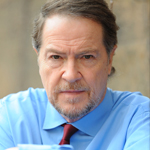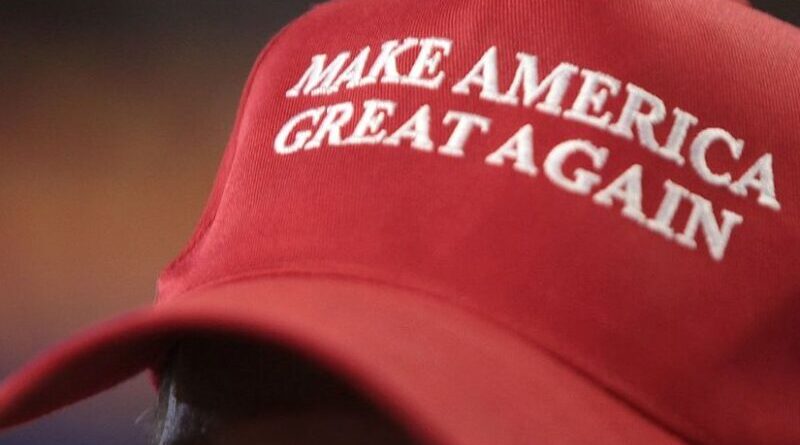A Practical Prescription For Taxing Our World’s Richest – OpEd

Ever wonder why the divide between the world’s richest and everybody else keeps getting wider? Gabriel Zucman, one of the world’s finest young economists, has just produced a report that riffs on one key reason: Our super rich pay next to nothing in taxes.
Just how close to nothing? This close: Over the past four decades, the world’s “ultra-high-net-worth individuals” have seen their fortunes increase, after taking inflation into account, an average 7.5 percent per year. How much annually have these rich paid in taxes? They’ve been paying, Zucman calculates, an effective tax rate “equivalent to 0.3% of their wealth.”
Other analysts have over recent years been sharing variations on that same basic story. But none of those analysts have ever had the opportunity to share that story on a grander stage than Zucman, the founding director of the EU Tax Observatory and an economist based at the University of California Berkeley.
Zucman prepared his landmark new report at the express request of Brazil, the nation that currently holds the presidency of the G20, the global grouping of the world’s most powerful economic nations. The world’s super rich, Brazil’s current leadership believes, are nowhere near paying their fair tax share.
Earlier this year, Brazil’s finance minister invited Zucman to address the G20’s finance ministers on how best to start reversing that state of affairs. This past February, Zucman did just that, making an impressive case for a global minimum tax on billionaires. Brazil subsequently asked Zucman to prepare a report on that notion for the upcoming end-of-July G20 finance ministers meeting in Rio de Janeiro.
Zucman has now officially delivered that report, and his study is already making headlines worldwide.
How could a global minimum on billionaires actually work when no international body has the authority to impose taxes on individuals? No international body, Zucman notes, has the authority to tax multinational corporations either. But the world now has what amounts to a 15 percent minimum tax on corporate profits that over 130 nations and territories are enforcing on a coordinated basis.
That same cooperative approach, Zucman contends, could bring the world an effective minimum tax on billionaires. This minimum tax, Zucman proposes, would kick in when billionaires aren’t paying in annual taxes a sum equal to 2 percent of their personal wealth.
In a world with this 2 percent global minimum, participating nations would also remain absolutely free to tax their richest at levels much higher than the minimum. Indeed, Zucman’s report points out, the existence of a global minimum tax on billionaires would encourage nations to put in place higher tax rates on our world’s wealthiest. In a minimum tax world, billionaires would have less opportunity—and incentive—to engage in tax avoidance.
Progressive taxes, a key pillar of democratic societies
A 2 percent global billionaire tax minimum would raise, Zucman calculates, as much as $250 billion a year from a mere 3,000 individuals worldwide. Extending this tax to centi-millionaires—deep pockets worth at least $100 million—would add another $140 billion annually. Raising the global billionaire minimum tax rate to 3 percent could raise the annual take to as much as $688 billion.
A massive infusion of new tax revenue along these lines would significantly bolster our world’s capacity to address the continuing challenges of poverty and climate change. That same revenue would significantly enhance the political health of our world’s democracies as well.
Progressive taxes, Zucman’s report stresses, remain “a key pillar of democratic societies.” Having tax systems that recognize that the rich have the wherewithal to pay taxes at a higher rate than people of limited means “strengthens social cohesion and trust in governments to work for the common good.”
Modern societies have typically aimed to do that strengthening via income taxes. But income taxes have had little success collecting appreciable revenue from our ultra-rich, Zucman relates, mainly because “ultra-high-net-worth individuals derive their income not from the wages they earn, but from the wealth they own—more precisely, in most cases from the businesses they own.”
These rich can use the corporations they control to end run their personal income taxes. One example: The less their companies shell out in dividends, the higher their corporate share price rises. And by not selling their own personal shares, the rich can sidestep capital gains taxes. Some of our planet’s largest publicly traded corporations—think corporate giants that range from Amazon and Tesla to Alphabet and Meta—pay only token dividends if they pay dividends at all.
These sorts of tax-avoiding maneuvers have enabled our world’s richest 0.0001 percent—our billionaire class—to more than quadruple their wealth as a fraction of global gross domestic product since the 1980s. This enormous addition to the wealth of our richest has for the most part totally escaped taxation.
Under the global 2 percent minimum tax that Zucman is advancing, that picture would change. All billionaires would find themselves facing this minimum tax if the “individual income taxes, wealth taxes, and economically equivalent levies” they pay add up to less than 2 percent of their overall wealth.
Could billionaires weasel their way out of paying this global minimum tax? Could they hide significant pieces of their personal fortunes? Not likely. The market value of each billionaire’s assets would take no great sleuthing to establish since the bulk of billionaire wealth comes from the value of the corporate shares of stock they hold, a matter of public record.
And most nations, Zucman adds, have also developed methods to value other sources of billionaire wealth because they’re already levying either inheritance or estate taxes.
Zucman’s minimum billionaire tax would let each participating nation determine how to make its billionaires meet the 2 percent minimum tax standard. Nations could, for instance, define unrealized capital gains as income, as the Biden administration has proposed, or put a wealth tax in place. A 2 percent tax on a billionaire’s personal wealth, Zucman points out, would “by definition” meet an international 2 percent minimum tax standard.
Nations could also simply presume that ultra-high-net-worth individuals “earn a certain fraction of their wealth in income” and place a tax on that presumed income.
Obstacles to subjecting billionaires to a global minimum tax
Allowing nations flexibility in how they enforce a global billionaire tax minimum, Zucman explains, would let each country “choose the instrument that best fits its circumstances, its legal context, its fiscal tradition, and its existing information reporting system.” And this flexible approach would likely “maximize the number of countries that could join the common standard.”
Serious obstacles to subjecting billionaires to a global minimum tax, Zucman’s report concedes, certainly do exist, on both technical and political levels.
“A variety of political and geopolitical factors,” he observes, “could make it difficult to obtain truly global participation in the proposed common standard.”
But the already existing minimum tax on multinational corporations, now three years old, vividly illustrates how global cooperation can overcome even the most serious of obstacles. The new corporate minimum tax allows “participating countries to tax non-participating countries’ undertaxed multinationals.” A coordinated global minimum tax on billionaires could adopt that same approach.
Zucman’s proposal for a global minimum tax on the world’s super rich, the economic ministers of Brazil and Spain stressed earlier this month, is already gaining significant international momentum. At a news conference in Rome, these two ministers called higher taxes on the world’s wealthiest an absolute must in a world confronting challenges that range from hunger and climate change to the horrific debt burden that’s currently confronting low-income countries.
A global minimum tax on billionaires, Brazil’s Fernando Haddad declared, would “affect just a few thousand individuals while benefiting billions.” Haddad went on to label a global billionaire minimum tax “a reasonable proposal in terms of social, economic, and political justice.”
Zucman, for his part, seems equally optimistic on his proposal’s prospects.
“New forms of international cooperation, long deemed utopian,” as he observes in his landmark new report, “can emerge in a relatively short period of time.”

Sam Pizzigati
Sam Pizzigati co-edits Inequality.org at the Institute for Policy Studies. His books include The Case for a Maximum Wage and The Rich Don’t Always Win.







